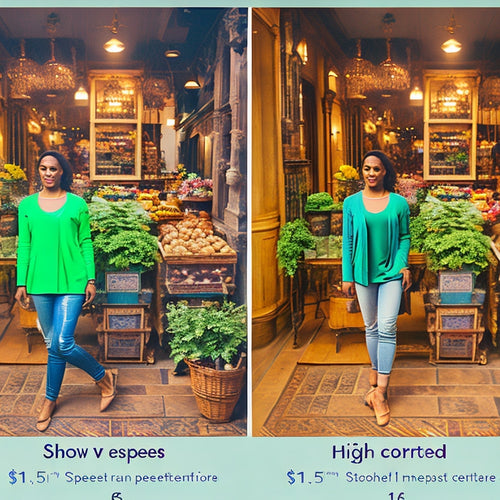
Mastering Affiliate Agreements: Boost Course Revenue Now
Share
You're leaving money on the table if you're not leveraging affiliate marketing to boost revenue for your online course. To succeed, you need a solid affiliate agreement that outlines terms, conditions, and commission structures. This secures a successful partnership and protects your business. You'll want to define the scope of work, establish fair payment terms, and specify promotional guidelines. By optimizing your affiliate program with the right tools, you can streamline partner performance, maximize revenue growth, and gain valuable insights. Mastering affiliate agreements can be a game-changer - and revealing these secrets can take your course revenue to the next level.
Key Takeaways
• A solid affiliate agreement outlines terms, responsibilities, and commission structures to ensure a successful partnership and boost course revenue.
• Clear and transparent commission structures motivate affiliates, increase promotions, and ultimately drive course sales and revenue growth.
• Defining the scope of work and responsibilities in the agreement helps prevent disputes, ensuring a smooth and profitable collaboration.
• Establishing fair and transparent payment terms in the agreement maintains affiliate trust, encouraging them to promote courses more effectively.
• A well-structured affiliate agreement provides legal protection, safeguarding course creators' interests and reputation while maximizing revenue potential.
Affiliate Marketing Fundamentals
As you explore the world of affiliate marketing, it's vital to understand that this performance-based marketing model involves collaborating with customers who promote your brand in exchange for a commission on each sale or referral generated through their unique affiliate link.
You'll need to establish clear commission structures, specifying how much affiliates earn per sale or referral.
You'll also need to decide on tracking methods to monitor affiliate performance. Additionally, you'll need to outline payment terms, including when and how affiliates will receive their commissions.
It's crucial to define responsibilities, ensuring both parties understand their roles and expectations.
Crafting a Solid Agreement
Crafting a solid affiliate agreement is essential to establishing a successful partnership. It is important to clearly outline the terms and conditions of your collaboration to avoid misunderstandings and guarantee mutual benefit. When crafting your agreement, consider the following key elements:
-
Clearly define the scope of work and responsibilities for both parties.
-
Establish a fair and transparent commission structure.
-
Outline legal considerations, such as intellectual property rights and liability.
- Develop effective negotiation strategies for resolving disputes.
Affiliate Program Best Practices
You've established a solid affiliate agreement, now it's time to focus on optimizing your program's performance by implementing best practices that drive results and foster strong relationships with your affiliates.
To guarantee success, define a clear commission structure that incentivizes affiliates to promote your course. Establish transparent payment terms, specifying when and how commissions will be paid. This builds trust and motivates affiliates to work harder.
Additionally, provide regular program updates, offer support, and recognize top-performing affiliates to maintain a positive and productive partnership.
Effective Promotion Guidelines
Establish clear guidelines for your partners to promote your course, specifying approved channels, such as blogs, websites, or social media, to secure compliance with your brand's messaging and reputation. This secures your partners understand what's expected of them and helps maintain your brand's integrity.
To further guide their promotional efforts, provide the following:
-
Clear transparency requirements, such as disclosing their partnership with your brand
-
Approved promotional materials, like logos, to maintain consistency
-
Guidelines on promotional strategies, including content creation and social media engagement
- Consequences for non-compliance, such as termination of the partnership agreement
Optimizing With Affiliate Tools
By leveraging the right affiliate tools, you can streamline your affiliate program, improve partner performance, and maximize revenue growth.
With the right tools, you can optimize your affiliate tracking, ensuring accurate commission payments and reducing potential disputes. Commission optimization is also made easier, allowing you to adjust rates and payout structures to incentivize top-performing affiliates.
Additionally, these tools provide valuable insights into affiliate performance, helping you identify areas for improvement and opportunities to boost revenue.
Frequently Asked Questions
How Do I Handle Tax Compliance for International Affiliate Partners?
When working with global partnerships, you'll need to research tax implications for international affiliate partners, ensuring you comply with local laws and regulations, and withholding taxes when necessary to avoid potential legal issues.
Can I Offer Different Commission Rates for Different Affiliate Tiers?
Like a master builder constructing a pyramid, you can create a tiered commission system, where top-performing affiliates receive higher rates, and benefits, incentivizing them to reach new heights, with performance-based tracking to guarantee transparency and fairness.
How Do I Protect My Brand From Rogue or Non-Compliant Affiliates?
To protect your brand from rogue or non-compliant affiliates, you'll want to implement compliance monitoring, ensuring they adhere to your guidelines. Establish clear legal protection and affiliation termination procedures to safeguard your brand reputation.
What Is the Ideal Affiliate Program Cookie Duration for Online Courses?
"Are you leaving money on the table with short-lived cookies? You're wise to wonder! For online courses, an ideal cookie duration is 30-60 days, allowing you to track performance and maximize conversions without overwhelming your affiliates."
Can I Use Affiliate Marketing to Promote Free or Low-Cost Digital Products?
You can promote free or low-cost digital products through affiliate marketing, leveraging paid advertising and social media marketing to reach a broader audience, but make sure you set clear expectations and incentives for your affiliates.
Related Posts
-
Maximizing Tiktok's Potential On Shopify
TikTok has rapidly emerged as a powerful platform for businesses to connect with their target audience and drive sale...
-

How Do I Add Social Media Handles to My Shopify Store
This article aims to provide an informative and strategic guide on how to add social media handles to a Shopify stor...
-

How to Do Shopify Optimization
Shopify optimization is a crucial aspect of achieving e-commerce success. By implementing effective strategies, onli...

